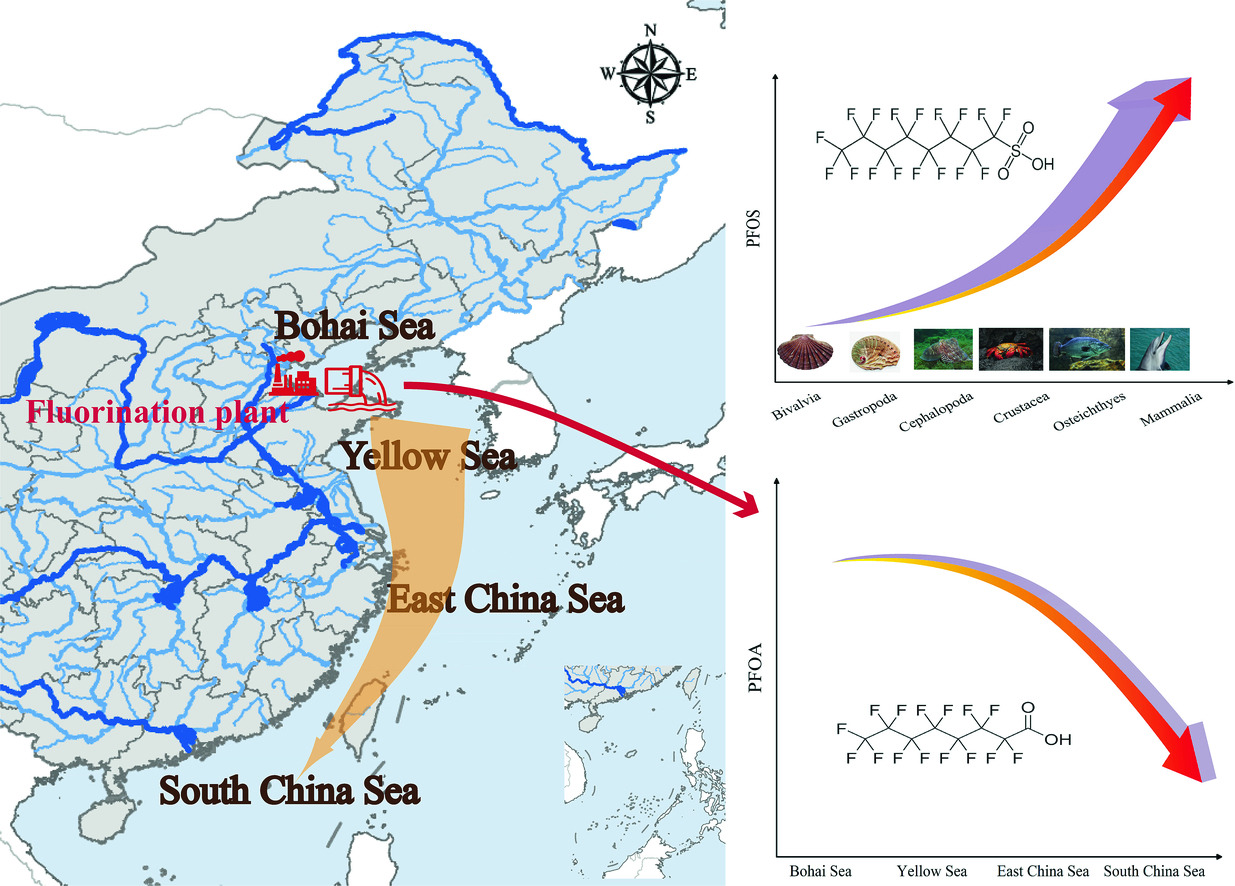Xingwei Xie, Yonglong Lu*, Pei Wang, Haojie Lei, Zian Liang
Science of The Total Environment
https://doi.org/10.1016/j.scitotenv.2023.162492
Published: 10 June 2023
Abstract
Per- and polyfluoroalkyl substances (PFASs) are a large and complex class of synthetic chemicals widely used in industrial and domestic products. This study compiled and analyzed the distribution and composition of PFASs in marine organisms sampled along the coast of China from 2002 to 2020. Perfluorooctane sulfonic acid (PFOS) and perfluorooctanoic acid (PFOA) were dominant in bivalves, cephalopods, crustaceans, bony fish and mammals. PFOA in bivalves, crustaceans, bony fish and mammals gradually decreased from north to south along the coast of China, and the PFOA contents of bivalves and gastropods in the Bohai Sea (BS) and the Yellow Sea (YS) were higher than those of PFOS. The increased production and use of PFOA have been detected by biomonitoring temporal treads in mammals. For the organisms in the East China Sea (ECS) and the South China Sea (SCS), which were less polluted by PFOA compared to BS and YS, PFOS was universally higher than PFOA. The PFOS of mammals with high trophic levels was significantly higher than that of other taxa. This study is conducive to better understanding the monitoring information of PFASs of marine organisms in China and is of great significance for PFAS pollution control and management.
